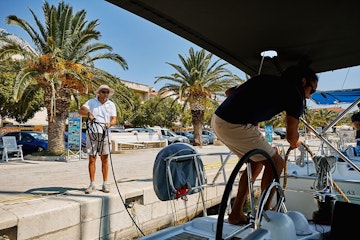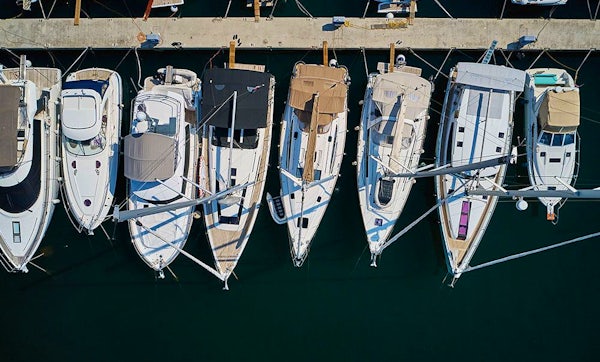Oil spills can have devastating effects on the marine environment due to the structure and behaviour of oil. Long after an oil spill is ‘cleaned’, an ecosystem will continue to have traces of the substance in it forevermore.
If oil is to reach a coastline, it will cling to every rock and grain of sand possible, destroying the natural environment for many land dwelling animals, such as birds. If oil comes into contact with sea mammals, it often kills them and impacted fisheries need decades to recover. Furthermore, if sea grasses absorb oil from a spill, it can make an area unsuitable for any marine wildlife to grow and prosper, creating a ‘dead zone'.
Did you know, just like land-based pollution, oil spills created by recreational boats are hard to track, as about 80% of oil spills go unreported. One pint (2 cups) of oil released into the water can spread into a 1-acre oil slick, larger than a football field.
The long term damage to species and their habitats, including nesting and breeding areas, is the most detrimental environmental effect an oil spill can cause.
It is extremely important for boaters to implement clean and safe boating practices when filling their tanks, in order to protect the environment and their personal health and safety. Accidental overflows, splashes and spills go directly into the water and impact our environment dramatically.

The cost to prevent a fuel spill is significantly less than the cost to clean it up. We can make a big difference by implementing the following clean boating practices:
Before Fueling
- Always remember SAFETY first!
- Be sure your vessel is securely moored to the fuel dock, turn off the engine, turn off all electronic equipment and heat sources, and send all other passengers ashore (by Croatian law, all passengers need to be off the vessel)
- Close all hatches, doors and ports
- Check fuel lines and tanks for any cracks, signs of corrosion, damage or leaks.
- Extinguish any burning tobacco
- Make sure your fire extinguisher is within reach
- Know the capacity of your fuel tanks or portable container. Enquire about the flow rate of your fuel source. This information, combined with the knowledge of your boat tank capacity and current fuel level, will assist you in having a better understanding of how long the fuel nozzle should be connected for
- Make sure you fill the tank with the right type of fuel and check that the fuel is going into the proper fill entry
- Have an absorbent bib, collar and spill kit on hand to catch any potential drips or spills
- Check with marina or fuel dock staff about their fueling policies. If you have any questions regarding how to properly fuel your boat, contact your marina or fuel dock operator
Whilst Fueling
- Place an absorbent bib or collar around the fuel nozzle to catch any drips or overflow
- Position yourself so that you can comfortably hold the nozzle in contact with the edge of the fill
- Fill the tank slowly and listen for a change in tone as the tank gets full. Boat fuel tanks are not pressurized like car fuel tanks, so the pump automatic shut-off nozzle rarely works
- While fueling, make sure the fuel nozzle is in contact with the metallic fuel tube or pipe to prevent static sparks.
- Attend the fuel nozzle at all times
- Use a well ventilated fuel spill container to cover the air vent and catch spills and overflow from the vent to prevent them from reaching the surface of the water
- Top up fuel at the start of your trip to only 90% of the tank's capacity. Remember that fuel expands as it heats, so if you leave your boat with a full tank on the water your boat may splash fuel overboard
- Never use electronics whilst fueling as this can increase the risk of sparking and can be very dangerous
After Fueling
- Screw the cap on tightly to keep vapor from escaping
- Clean any drops off the nozzle and boat deck with an absorbent towel
- Wipe up any accidental spills and dispose of rags/absorbent fuel bib/collar as hazardous waste
- For gasoline systems, before starting the engine, open hatches, doors and ports to ventilate and operate the blower for 3-5 minutes
- Check the bilge and engine compartments for fuel odors and make sure there is no odor of gasoline anywhere in the boat
